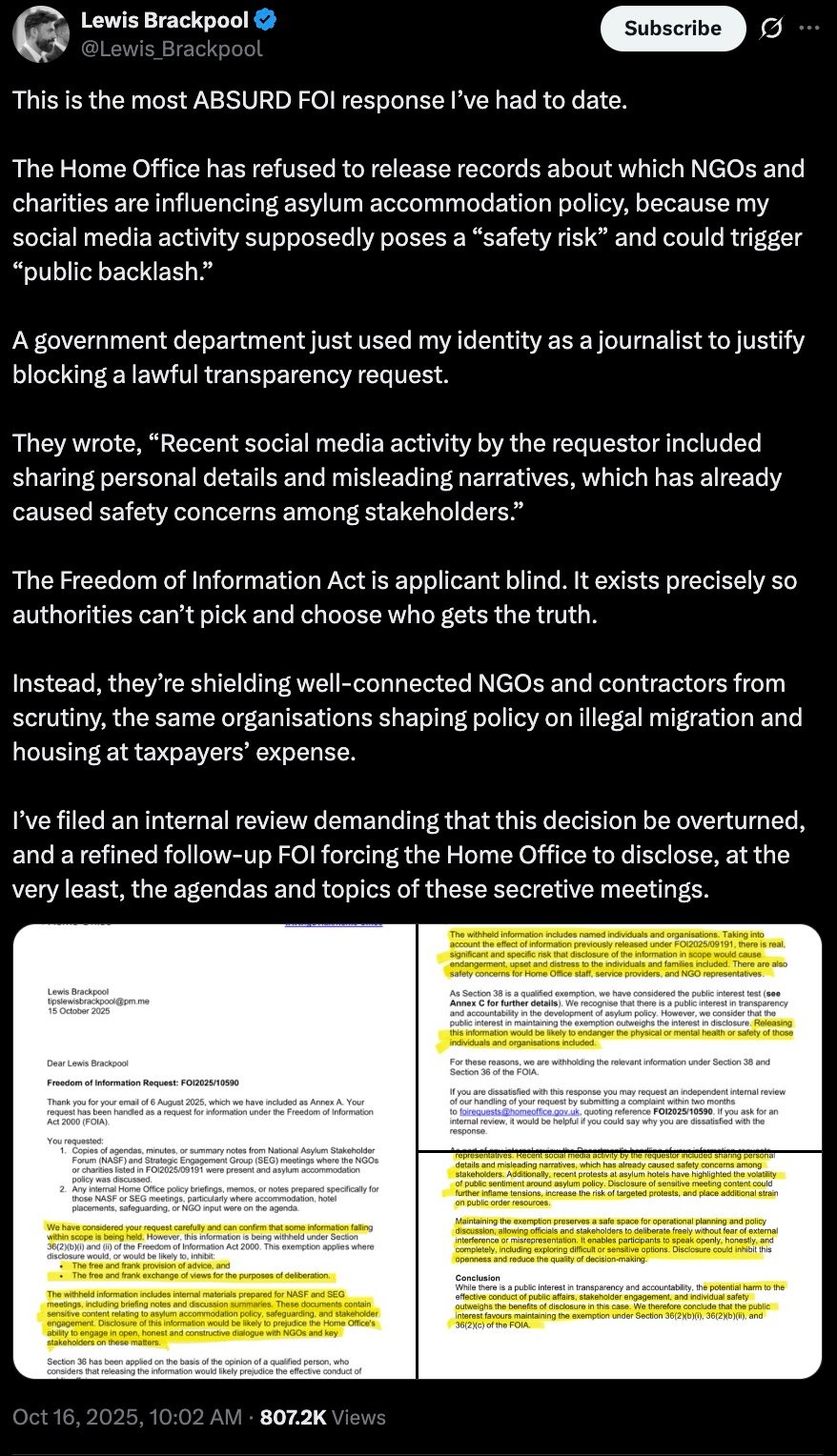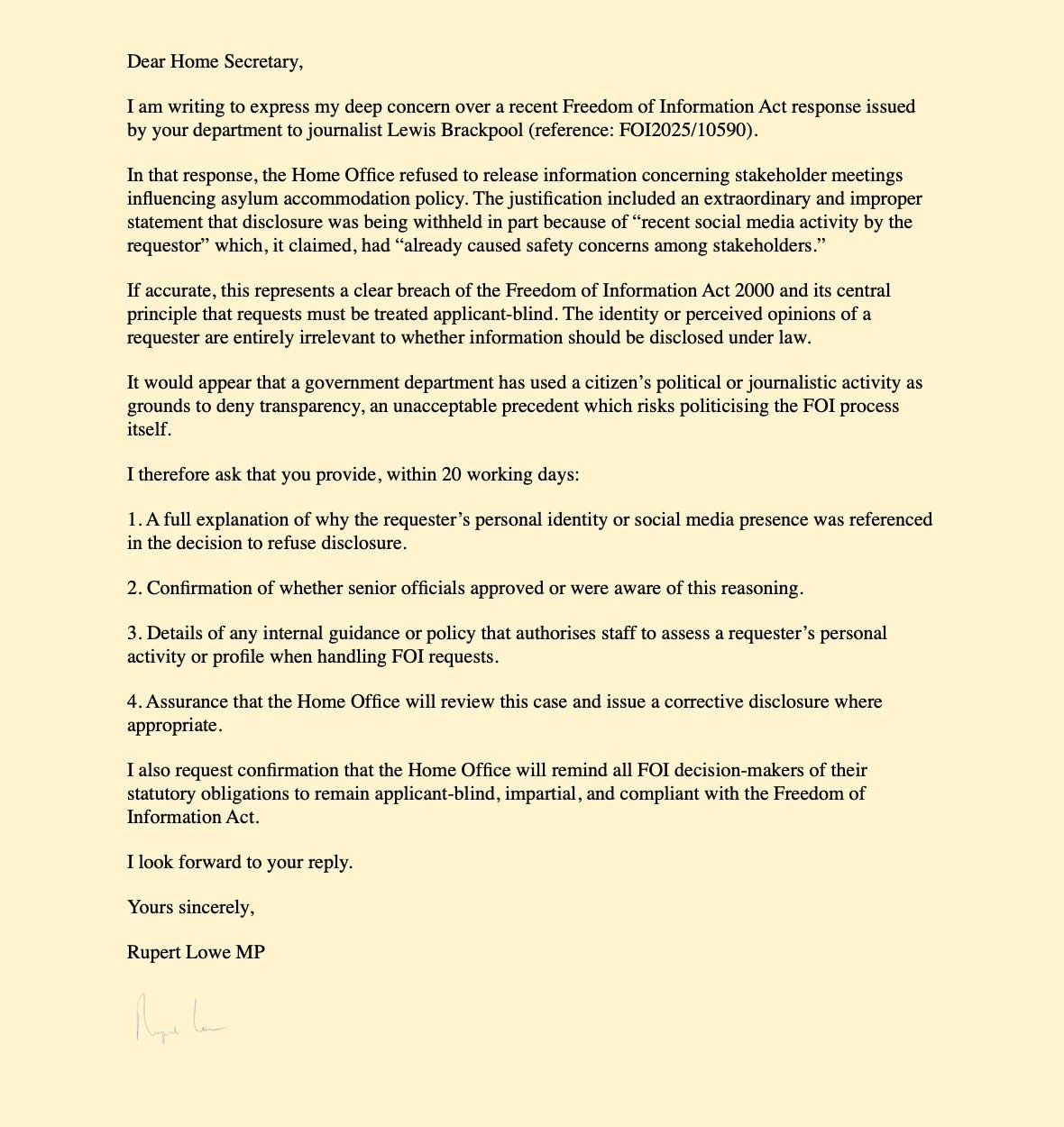A growing storm has erupted over the UK Home Office’s refusal to release details about which NGOs and charities have been shaping asylum accommodation policy, after officials cited a journalist’s social media activity as a supposed “safety risk.”
The department rejected journalist Lewis Brackpool’s Freedom of Information (FOI) request, claiming that disclosure could lead to “public backlash” and endanger individuals involved in policy meetings.

Documents show the Home Office leaned on provisions under Sections 36 and 38 of the Freedom of Information Act to justify secrecy, arguing that publication might “inhibit free and frank discussions” and “increase the risk of targeted protests.”
More: The Freedom of Information Act and How To Use It
The withheld material reportedly includes internal notes and summaries from the National Asylum Stakeholder Forum (NASF) and the Strategic Engagement Group (SEG), key bodies where government officials meet with NGOs to discuss asylum housing, hotel placements, and safeguarding policies.
Officials insisted that transparency in this case could “reduce the quality of decision-making” and place “additional strain on public order resources.”
Brackpool, who published the full exchange online, condemned the decision as an abuse of power. Calling it “the most ABSURD FOI response I’ve had to date,” he pointed out that the Freedom of Information Act explicitly prohibits authorities from considering a requester’s identity or opinions.
“A government department just used my identity as a journalist to justify blocking a lawful transparency request,” he wrote.
He accused the Home Office of protecting politically connected NGOs from accountability while using the language of “safety” as a shield against scrutiny.
“They’re shielding well-connected NGOs and contractors from scrutiny, the same organisations shaping policy on illegal migration and housing at taxpayers’ expense,” Brackpool said, adding that he has filed an internal appeal demanding the decision be overturned.
The refusal has drawn political backlash of its own. MP Rupert Lowe wrote to the Home Secretary, calling the move “a clear breach of the Freedom of Information Act 2000 and its central principle that requests must be treated applicant-blind.”

Lowe demanded a full explanation of how Brackpool’s social media activity came to influence the decision, along with confirmation of whether senior officials sanctioned it.
Lowe warned that allowing personal or political views to determine who can access public information “risks politicising the FOI process itself,” and urged the Home Office to issue a corrective disclosure and reaffirm its legal obligation to impartiality.
What began as a routine transparency request has now escalated into a larger test of press freedom and government accountability. By treating a journalist’s online presence as justification for secrecy, the Home Office has raised profound concerns about whether officials can selectively decide who deserves access to the truth.
This is dangerous precedent: when the state can withhold information because it dislikes the person asking, transparency ceases to be a right and becomes a privilege.










